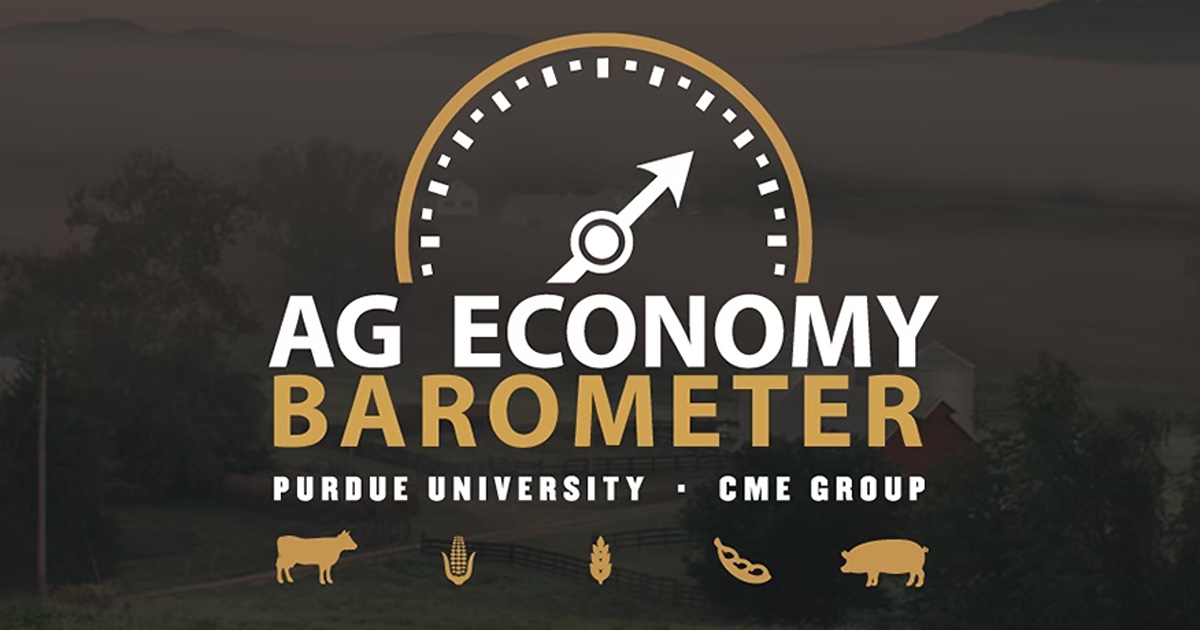African Swine Fever Risk Assessment Tool Available
WEST LAFAYETTE, Ind. — African swine fever cases have been identified in the Dominican Republic, and the U.S. is on alert. Researchers have developed an online tool to help farmers prevent the disease, which can devastate pork production.
“African swine fever infections can lead to 100% mortality on a pig farm and there is no treatment,” said Paul Ebner, professor of animal sciences at Purdue University, who developed the risk assessment and educational tools. “This was the first time it had been detected in the Americas in decades.”
Ebner partnered with veterinarians in the Dominican Republic and created the tool, BioPorc-RD, for farmers to conduct self-assessments of the risk of African swine fever coming to their farms. BioPorc-RD is available at https://bitly.com/trasa-ppa.
The assessment takes a user through different biosecurity practices and awards points based on whether the farmer does the practice and the efficacy of the practice in preventing African swine fever, commonly referred to as ASF.
“Importantly, at each step, BioPorc-RD explains why the practice is important and how to do the practice,” Ebner said. “We want to help pig farmers understand the reasoning behind each of the biosecurity practices and how to implement them at their own farm. Some of the changes needed do cost money, but it is cheaper than losing your pig population. Biosecurity is an investment to protect your farm and income.”
Silvia Tortosa, the lead veterinarian on the project and co-creator of BioPorc-RD, shared the tool with pork producers in the Dominican Republic. The online assessment does not collect any personal data and is tailored to the needs of farmers within the country, she said.
“The response has been very positive from the farmers and the government, which wants to create comprehensive biosecurity plans for producers,” said Tortosa, an SPS and animal health specialist with the Executive Service Corp. “Despite the fact that ASF was present in the Dominican Republic in 1978 and they had to slaughter the whole swine population, they had not put many measures in place to be prepared for anything like this happening again.”
Daniel Rivas, a swine veterinarian working in the Dominican Republic, uses BioPorc-RD.
“The tool is very useful since it focuses on all the key points to prevent the entry of ASF into the farm,” he said. “It makes us aware of how vulnerable we can be if we do not take the appropriate measures.”
Ebner and Tortosa are part of the USDA-funded and IESC-implemented Trade Safe (TraSa) project in the Dominican Republic. The assessment and the educational tool wasn’t originally part of the project plan, but when ASF was detected, Ebner and Tortosa redirected the efforts to the new challenge.
“We thought this could make a difference,” Ebner said. “Things like making sure that visitors have not been on other pig farms, quarantining new pigs, and making sure feed is ASF-free to the extent possible can significantly mitigate the risk of ASF coming to your farm. We wanted to get research-based information to the producers as quickly as we could.”
Biosecurity is like protecting a building from robbers, Tortosa said.
“It is good to close half of your windows, but you really need to close them all to keep the robbers out,” she said.
Writer: Elizabeth K. Gardner; 765-441-2024; ekgardner@purdue.edu
Sources: Paul Ebner: pebner@purdue.edu
Silvia Tortosa: slaosa@iesc.org
Agricultural Communications: 765-494-8415;
Maureen Manier, Department Head, mmanier@purdue.edu






